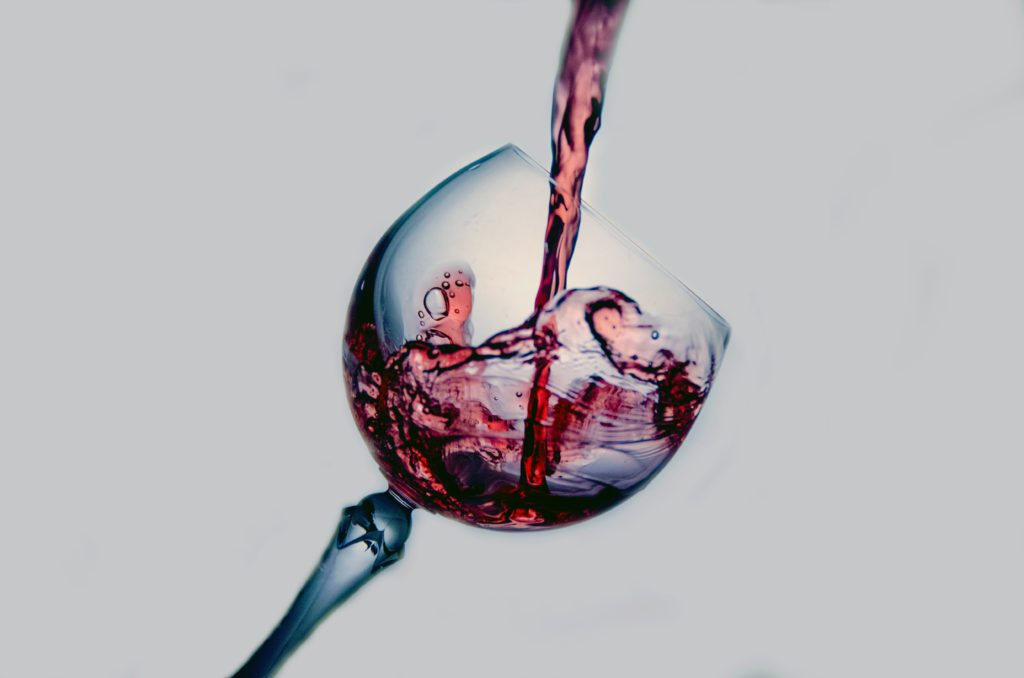Vegan Wine: Does it Exist and How to Check
By Chloe McCoy
Guest Blogger
The beautiful and ancient process of wine making is one that dates back to the late Stone Age. As we have evolved, so too has this delicate art. Now, we get to enjoy the fruits of centuries of labor and stack our racks with wine that benefits from eons of experience.
One of the ways humans have evolved is by questioning and reevaluating what we consume and where it comes from. With many people all over the world and here in the US following the path to veganism, we find ourselves pondering a particularly interesting question: does vegan wine exist, and if so, how do we check?
It’s difficult to imagine how animal products could be used in wine making, but it’s not beyond reason. Thankfully, we have found answers to this topic for you. Keep reading to find out more.
Is Wine Vegan?
If you’re not a vegan or just embarking on your journey to veganism, then let’s start at the very beginning. Vegans remove any food, drink, or product derived from an animal in their diet. They also usually do not use any products or items on their bodies or in their day-to-day lives that come from animals.
One may assume that because the main ingredient in wine is fruit, that surely all wine must be vegan? This statement is untrue, and here’s why:
The process of wine making sometimes includes a few different animal products, particularly during the “fining” process, which filters out unwanted proteins, tannins, and yeast from the wine. Fining also enhances the taste, texture, and color of the wine.

Some ingredients used to complete this filtration process are albumin (egg whites), gelatin, isinglass (a type of collagen found in the bladders of certain tropical fish), and casein (a protein found in cow’s milk). All of these animal products are certainly not in keeping with a vegan lifestyle.
What Can be Done to Make Wine Vegan?
There are some unexpected and interesting ways to eliminate the need for animal products throughout the fining process. Some winemakers are using naturally occurring clays such as kaolin clay and bentonite clay to filter their wines. Other options include substances such as activated charcoal, Irish moss, limestone, silica gel, and pea protein. All of these are vegan, cheaper to use, easy to come by, and generally less inflammatory for most body types.
Some people prefer the taste and feel of unfiltered wine; this is another option to seek if you’re looking for a vegan wine. If your wine is unfiltered and the sediment has been left behind, then it is very likely that the delicious contents of the bottle have not been in contact with any animal products. Of course, it’s always important to check the label first.
How to Check if a Wine is Vegan
This is where it may get a little tricky.
Because the fining process is intricate and complex, winemakers aren’t expected to fit the entire filtration process on a label. However, you can always research the top vegan wine brands before your next visit to the store. If you know which brands to look for, this is a great place to start. Better yet, you may be able to order online from the comfort of your home and have it delivered!
However, if you find yourself staring at the store shelves not sure which bottle to select, remember to read all the labels fully to check for a vegan or cruelty-free sign.
Vegan wine is becoming increasingly popular, not only because it is in high demand, but because many winemakers and farmers are turning to more natural methods of operation. Some winemakers even believe that the fining and filtration process can possibly detract from the taste and texture of the finished product. Hence, we are seeing more and more unfiltered wines on the shelves.


Some of these unfiltered wines are easy to spot because the label will say “Not fined” or “Not filtered.” Here in the US, alcohol does not have any regulations or requirements for labelling, so it’s advisableto do some research on which brands will cater to your preferences.
Another easy way to tell if a wine is vegan or not is if the bottle clearly states something along the lines of “May contain traces of animal products” or “May contain traces of egg white and fish products.” Not all brands will state this on the label, but it’s always worth checking it before you purchase.
Taste Concerns and Aging of Vegan Wine
If you want to try vegan wine or make the long-term switch, you are probably wondering about the difference in taste.
Thankfully, vegan wine tastes just as delicious as non-vegan wine.
If the wine has been through a fining process, the choice of fining agent has no effect on the finished product. Whether the winemaker has used egg whites or limestone to filter his product, you will likely be none the wiser as you enjoy each sip.
Unfiltered wine, however, is a slightly different experience and it essentially comes down to personal preference. While ome people prefer the full-bodied taste of an unfiltered wine, others prefer the smooth velvety texture of a filtered one: it’s all up to you and your palette!


Another question that a true connoisseur will want to consider: does vegan wine age well?
Yes, it absolutely does.
If a vegan or unfiltered wine is also preservative free, here is a bit of guidance on the aging process. Red wine will need between two and three years to age sufficiently and it must be stored correctly. The tannins from the red hue in the skin of the grapes also happen to act as natural preservatives. In the case of white wine or rosé, consider allowing it to age for at least one year.
With the global rise of veganism and conscious consumerism, vegan wine will surely grow in popularity. It’s just as delicious and enjoyable as non-vegan wine and in time, it should become readily available, just like other vegan alternatives now found in brick-and-mortar and online shops.
Looking for quality, handcrafted wine storage options for all your precious bottles, vegan or otherwise? Check out our standard wine rack options, and start protecting your passions!
Author Bio: Chloe McCoy is a gastronome by day and a foodie content writer by night. While covering articles about the food, beverage, and restaurant industry, she’ll have a plate of snacks to munch on beside her. During her free time, Chloe enjoys going to wine tasting events with her best friend.

